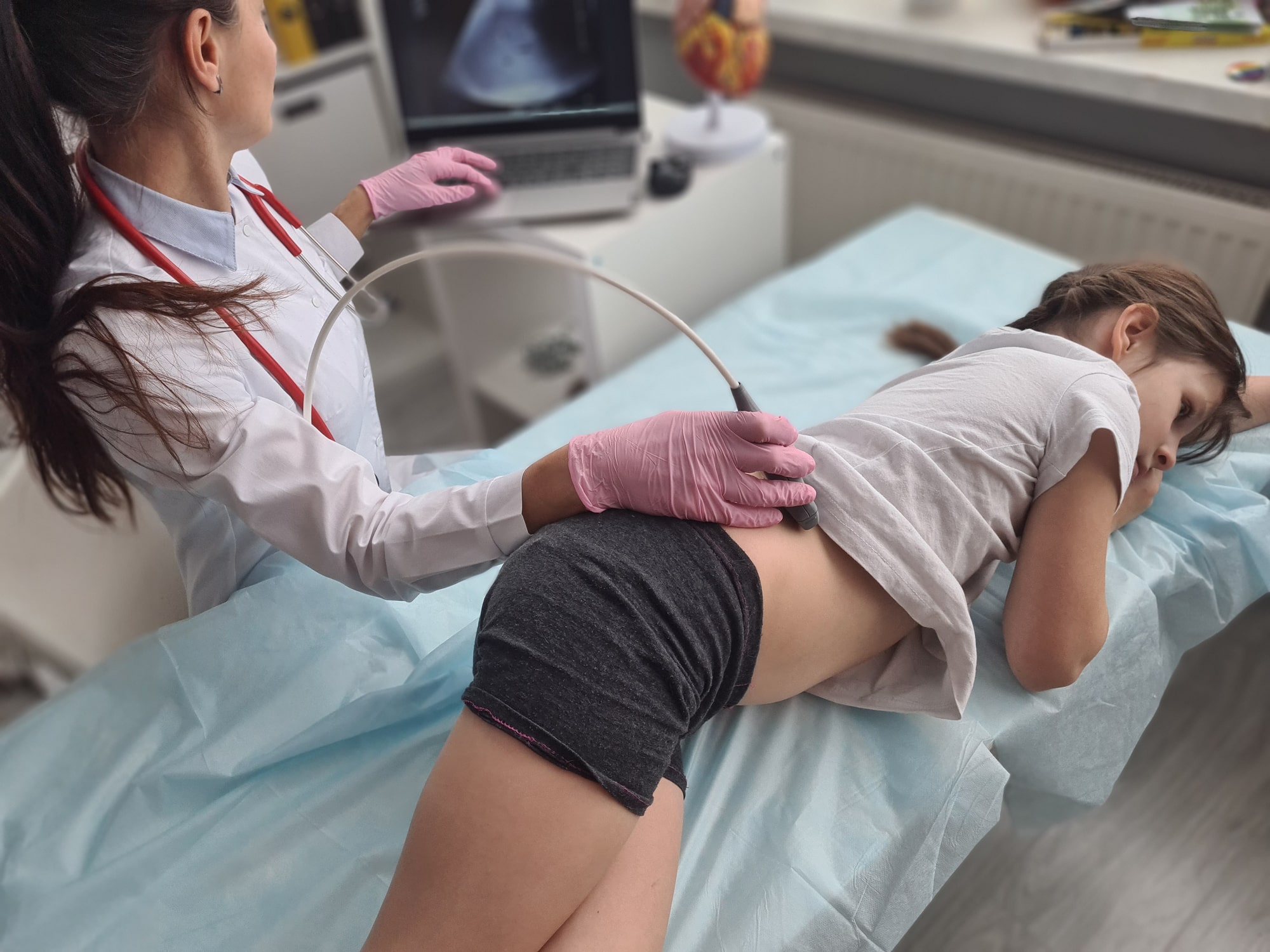Author: Northwoods Urology

When it comes to your child’s urological health, open communication with a pediatric urologist is key. Addressing concerns promptly ensures early detection and effective management of potential issues. Below are essential topics to discuss with your child’s urologist, covering a range of conditions that may affect pediatric urology.
Inguinal Hernias:
Inguinal hernias are common in children and occur when a portion of the intestine protrudes through a weakened abdominal wall. Discuss any swelling or bulging in the groin area, especially during crying or straining. Early detection and intervention are crucial to prevent complications.
Hydroceles:
A hydrocele is the accumulation of fluid around the testicle, causing swelling. Persistent swelling or changes in size should be discussed with the pediatric urologist. Understanding the potential causes and available treatments is essential for proper management.
Hydronephrosis:
Hydronephrosis refers to the swelling of a kidney due to urine build-up. Symptoms may include abdominal pain, frequent urinary tract infections, or abnormal urine flow. Identifying and addressing hydronephrosis early can prevent long-term kidney damage.
Ureteropelvic Junction Obstruction (UPJ):
UPJ obstruction is a blockage at the junction where the ureter meets the kidney. Symptoms may include persistent flank pain, urinary tract infections, or blood in the urine. Discussing diagnostic and treatment options is crucial for managing UPJ obstruction.
Hypospadias:
Hypospadias is a congenital condition where the urethral opening is on the underside of the penis. Discuss surgical options and potential long-term effects on urinary and sexual function.
Kidney Stones:
While relatively uncommon in children, kidney stones can cause significant pain and discomfort. Discuss symptoms such as abdominal pain, blood in urine, or frequent urination, and explore preventive measures.
Neurogenic Bladder:
Children with neurological conditions may experience issues with bladder control. Discuss strategies with your pediatric urologist for managing neurogenic bladder, including medications and catheterization.
Recurring Urinary Tract Infections (UTIs):
Frequent UTIs may indicate an underlying issue. Consequently, it is important to discuss symptoms and explore preventive measures. This proactive approach helps avoid recurrent infections that can have a significant impact on kidney health.
Vesicoureteral Reflux (VUR):
VUR occurs when urine flows backward from the bladder into the ureters. It can lead to UTIs and kidney damage. Discuss diagnostic tests and treatment options for VUR with your pediatric urologist.
Undescended or Retractile Testes:
Abnormal testicular descent can significantly impact fertility and elevate the risk of testicular cancer. Therefore, it is crucial to discuss options for correction and explore potential long-term implications.
Circumcision and Circumcision-Related Options:
Often circumcision is done just after birth. The benefits, risks, and potential complications of circumcision can be discussed with your physician prior to birth, after birth, or even into adulthood. If your child has circumcision complications, those may also be discussed with your pediatric urologist.
When to seek a Urologist-
Symptoms in children that may prompt parents to seek consultation with a pediatric urologist vary and should be addressed promptly to ensure proper diagnosis and treatment.
Persistent swelling or a bulge in the groin area, especially during crying or straining, could indicate an inguinal hernia. Parents should be vigilant for any changes in the size of the testicles, which could be a sign of hydroceles. If a child experiences frequent urinary tract infections, blood in the urine, or abnormal urine flow, it may indicate underlying urological issues like hydronephrosis or urinary reflux. Persistent abdominal pain, particularly in the flank area, may be a symptom of conditions such as UPJ obstruction or kidney stones. Unusual genital anatomy, such as hypospadias, should also be discussed with a urologist.
If parents notice any of these symptoms, seeking the guidance of a pediatric urologist is essential for timely intervention and optimal urological health for their child.
Openly communicating with your child’s urologist is vital for early detection and effective management of urological conditions. By addressing these topics, parents are well-informed and can actively participate in their child’s urological care, promoting optimal health and well-being.





